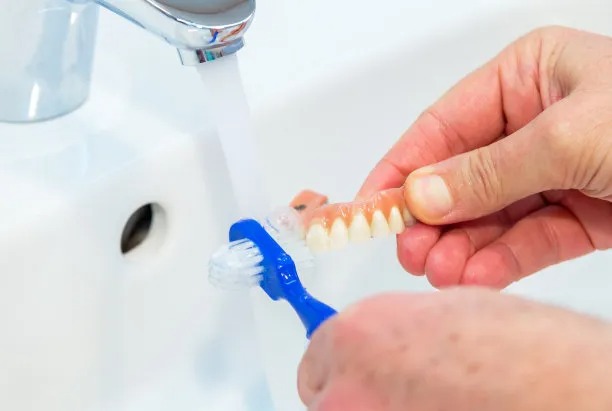Summary: Dental fillings are a common procedure aimed at restoring the integrity of a tooth affected by decay or damage. To ensure successful treatment and minimize complications, certain precautions must be taken before, during, and after the filling process. This article explores four essential aspects: choosing a qualified dentist, following post-treatment care instructions, managing dental anxiety, and maintaining regular check-ups. Each section aims to provide insights to safeguard oral health and enhance the effectiveness of dental fillings.
1. Choosing a Qualified Dentist for the Procedure

The first step to a successful dental filling is selecting a qualified dentist. Not all dental practitioners have the same experience or expertise, especially in restorative procedures. Researching a dentists credentials, experience, and patient reviews is essential. This groundwork helps to ensure that you are entrusting your dental health to a capable professional who is well-acquainted with the latest techniques and materials.
Moreover, visiting the dental practice for an initial consultation allows patients to gauge the environment and level of comfort. Speaking with the dentist about their approach to filling procedures, including the types of materials they use, can help you feel more at ease and informed about your options.
Lastly, ensure that the dentist invests in continuous education. Dentistry is an evolving field, and a dentist who keeps up with new technologies and techniques will likely provide better outcomes for their patients.
2. Following Post-Treatment Care Instructions
Following post-treatment care instructions is crucial for the success of your dental filling. Immediately after the procedure, the anesthetic may leave your mouth numb. Avoid chewing until the numbness wears off to prevent accidental injury to your cheeks or tongue.
Additionally, it is important to adhere to any dietary restrictions set by your dentist. For instance, if a temporary filling has been placed, hard, sticky, or extremely hot foods should be avoided to ensure the filling stays intact while awaiting a permanent solution.
Another important aspect is maintaining a proper oral hygiene routine. Brushing twice a day and flossing regularly can help prevent further decay around the filling area. Also, consider using a soft-bristled toothbrush and non-abrasive toothpaste to avoid irritating the site of the filling.
3. Managing Dental Anxiety Effectively
Dental anxiety can significantly impact the success of treatments like fillings. Managing this anxiety through various strategies is essential. One effective method is practicing relaxation techniques, such as deep breathing or visualization prior to your appointment. These techniques not only focus the mind but can also contribute to an overall sense of relaxation.
Moreover, communicating openly with your dentist about your fears can help. A professional who understands your anxiety can provide options, such as sedation dentistry or providing clear explanations about what to expect during the procedure, making it easier to cope.
Additionally, consider bringing a friend or family member along for support. Their presence can provide comfort and help ease nervousness during your visit, contributing positively to your overall experience.
4. Maintaining Regular Dental Check-Ups
Regular dental check-ups play a vital role in ensuring the longevity of your dental fillings. Scheduled visits allow your dentist to monitor the filling for any signs of wear or further decay that might compromise the restoration. Early detection of issues can save you discomfort and additional costly treatments down the road.
Furthermore, during these visits, your dentist can provide professional cleaning and personalized advice for maintaining your dental health. This includes reminders about proper brushing techniques, dietary recommendations, and tips specific to how to care for your fillings.
Lastly, establishing a consistent dental schedule builds a strong relationship with your dentist, enabling better communication and understanding of your dental needs. This proactive approach guarantees that your oral health remains a priority.
Summary:
In conclusion, ensuring the successful outcome of a dental filling requires attention to various factors ranging from choosing the right dentist to following post-treatment care. By prioritizing these precautions, patients can greatly reduce the risks of complications and enhance the longevity of their dental work.
Investing in dental health through regular check-ups and effective anxiety management will not only maintain the integrity of your fillings but also contribute to overall oral wellness for years to come.
This article is compiled by Vickong Dental and the content is for reference only.
Vickong Dental
Vickong Dental is a large medical group established in Hong Kong in 2008 by professors from well-known medical universities in Guangdong and Hong Kong, as well as medical doctors from key national '985' universities (including Master's supervisors and senior professors). The chain of branches brings together expert dentists with PhDs and Master's degrees from Hong Kong and Mainland China, committed to providing high-quality dental treatment.
"Vickong Dental Practices the University Motto of 'Healing and Serving Society,' with a Stable Operation for Sixteen Years. It Has Been honored with Hong Kong Enterprise Leaders's Choice,' and is a Global Trusted Implant Center for the Nobel Implant System. Recommended by Hong Kong Metro Broadcast and Guangdong Television, it Serves Customers from Over Thirty Countries and Regions, Gaining the Trust and Favor of Citizens from the Guangdong-Hong Kong-Macau Greater Bay Area and Surrounding Cities.

Thousands of customers' unanimous praise
The most recognized and highly recommended dental service by customers in the Guangdong-Hong Kong-Macau Greater Bay Area
We Ensure You Receive Detailed Care and Attention Here
Hong Kong standards, Shenzhen prices, Your Trusted English-speaking dentists

Vickong Dental Medical-Grade Instrument Disinfection Process
Vickong Dental Medical-Grade Instrument Disinfection Process

Vickong Dental Chain: A Warm and Comfortable Environment for Treatment






Appointment Hours

Q&A
Why choose Vickong Dental?
Vickong Dental practices the university motto 「Medicine to Benefit Society」, with each branch bringing together highly qualified dentists with doctoral and master’s degrees from Hong Kong and the Mainland, and has maintained seventeen years of steady operation。Recipient of 「2024 Hong Kong Enterprise Leaders Brand」, 「2025 Hong Kong Enterprise Leaders Brand」, a Nobel Biocare Global Trusted Implant Center, and a brand recommended by Metro Radio Hong Kong and Guangdong TV。
To date, we have served customers from more than thirty countries and regions,earning exceptionally high word-of-mouth recognition and trusted recommendations from residents across the Guangdong-Hong Kong-Macao Greater Bay Area and surrounding cities
We have eight major branches in Zhuhai、Shenzhen,and a consultation and service assurance center in Hong Kong,so you can book a free consultation at any time for any questions,which is very reassuring.
If I do not accept the quotation after the CT scan, will I be charged??
No! As long as the actual treatment has not started, you will not be charged any fees.
Will there be any additional charges during the treatment process?
No, there won’t be any additional charges. Before treatment begins, we will clearly explain the treatment plan and its corresponding fees. Only after the patient agrees and signs the consent form will we proceed with the dental service.
Can I pay in Hong Kong dollars?
Yes. Vickong Dental accepts payment in Hong Kong dollars. The amount will be converted based on the exchange rate of the day, and the applicable rate will be clearly communicated to you in advance.
Can I reschedule my appointment at any time?
Yes. Please contact us via **WeChat** or **WhatsApp** as early as possible, providing your original appointment time and details, along with your preferred new date and time slot for rescheduling.













